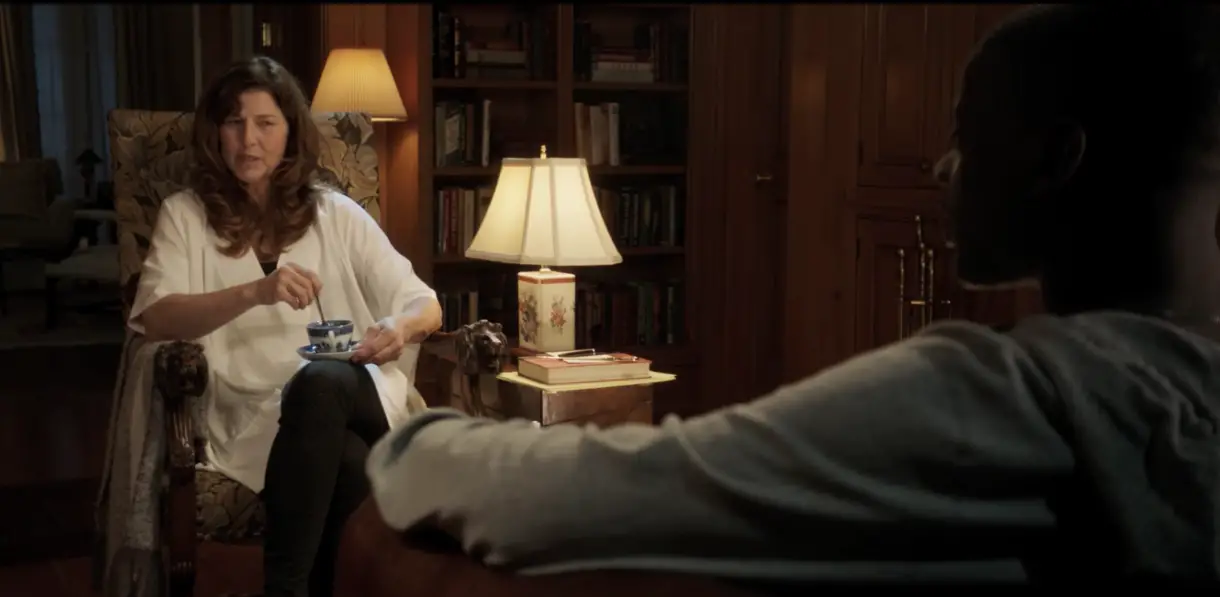Why do Americans love horror movies? Sure, they’re exhilarating, but they’re also terrifying. The film genre brings to life everything from mythical demons to homicidal maniacs, making audiences confront spooky scenarios that they would normally avoid. In fact, the number of horror movies produced worldwide increases each year. Furthermore, even though the genre makes up 4.1 percent of all movies made per year, it always takes more than 4 percent of the market share.
But here’s the funny thing about horror: it can be entirely different depending on which country it hails from. The best example of this happened during the early 2000s. The success of “The Ring,” a story adapted from a Japanese manga, led to the production of other Japanese horror (or J-horror) films such as “The Grudge” and “One Missed Call.” The reoccurring themes of J-horror movies differ from their American cousins. Common themes include hauntings, death by betrayal and, most iconic, female ghouls with long, black hair.
These foreign types of horror were introduced into American cinemas so innocuously that most people don’t even realize that these tropes originated from outside the United States. The good part of this is that American audiences are learning about other cultures: what frightens them, what they think is dangerous and what they think is important.
Enter Jordan Peele’s “Get Out.”
A Lost Subgenre
I’ll start by saying that the movie is by no means flawless. Regardless, the film is entertaining, riveting and filled with potential. I cannot wait to see more from Peele as a director.
The movie reintroduces a subgenre that has lain dormant in cinema for some time now: black horror. African-American filmmakers haven’t made horror movies since the 1970s, the most notable being William Crain’s “Blacula.” Even after that, the closest Hollywood has gotten to African-American representation in horror movies (outside the trope of the black guy dying first) is “Candyman” in 1992. Needless to say, black horror hasn’t had a chance to shine in quite a while, and “Get Out” is a welcome sight.
African-American Horror
Instead of clinging to cliché horror tropes depicted in many traditional fright films, Peele focuses on ethnic horror, namely, things that scare contemporary black people. He especially likes the subtle, simple things that shouldn’t be frightening but are.
The movie begins with the main character, Chris, preparing to meet the parents of his new girlfriend, Rose, which is a nervous scenario as is. Add to that the fact that Chris is black and Rose is white, and another layer of underlying paranoia takes over.
In the fashion of most horror movies, where tension builds by focusing on the hidden horror behind everyday occurrences, like someone sneaking up on you or the feeling like you’re being watched, “Get Out” does the same, but with an emphasis on racial fear, such as meeting people and being unsure if your race is a problem for them, staying calm when seeing a white family with black “help” and worrying that any racially-based fears are a product of unfound paranoia.
On the topic of internalized and racially skewed fears, the movie also tackles a common fear within the black community: mental health. African-Americans struggle with the acceptance of mental health. Most members, particularly black men, outright reject the notion, afraid of being classified as “crazy.” This is not surprising, seeing as traditional American media has frequently demonized those battling mental illness.
They often appear as the homicidal maniacs in mainstream horror movies. This sentiment hasn’t been lost on black audiences. Chris must confront this fear head-on, since Rose’s mother is a psychiatrist and offers to cure him of his smoking habit using hypnosis.

Enter the next subtle unease surrounding hypnosis, yet another fear deep-seated in the African-American psyche dating back to slaves in Haiti. The modern mythos of zombies actually started during that time period. Counter to the definition of zombie that’s popular today, the word originally referred to a body being controlled by an evil sorcerer or witch, a belief which Haitian slaves deeply feared. Peele takes full advantage of that fact, tying major plot points to the idea of losing control of the body.
Peele’s movie also touches on the fear of being out of place. Naturally, the main character, Chris, stands out as the only black person in many situations in the movie. Even when other black characters are on screen with him, their behavior makes him feel even more alone. Even the music in the film highlights the feeling of displacement. The director often overlays shots of traditionally suburban areas with a Swahili-inspired tribal song, with lyrics that translate to “Listen to your ancestors. Something bad is coming. Run.”
Unfortunately, the warning is lost on the main character.
Social Commentary in Horror
“Get Out” successfully encapsulates the black experience by exaggerating and mystifying it. Peele depicts aspects of the black community that are rarely talked about. The audience understands the worries of the main character and why he’s afraid of situations that are usually innocent. The movie addresses black and white audiences simultaneously.
On one hand, it highlights some of the harmless things whites do while interacting with black people. While the comments are innocent, they might disturb the person they’re talking to. On the other hand, the movie alerts black viewers that overthinking these comments may just be causing more stress than anything.
That’s a lot of history and social commentary to cover in a horror movie. Jordan Peele’s ability to tactfully deliver such serious messages in a genre that is traditionally known for being frivolous speaks to his directorial skill. Movies like this are the product of supporting director diversity in Hollywood.
Everyone benefits because we get to see unique movies that expand our understanding of the world. “Get Out” could be the beginning of a slew of horror movies based on what scares other cultures. Maybe then, the zombie-craze can finally die (pun intended).

















